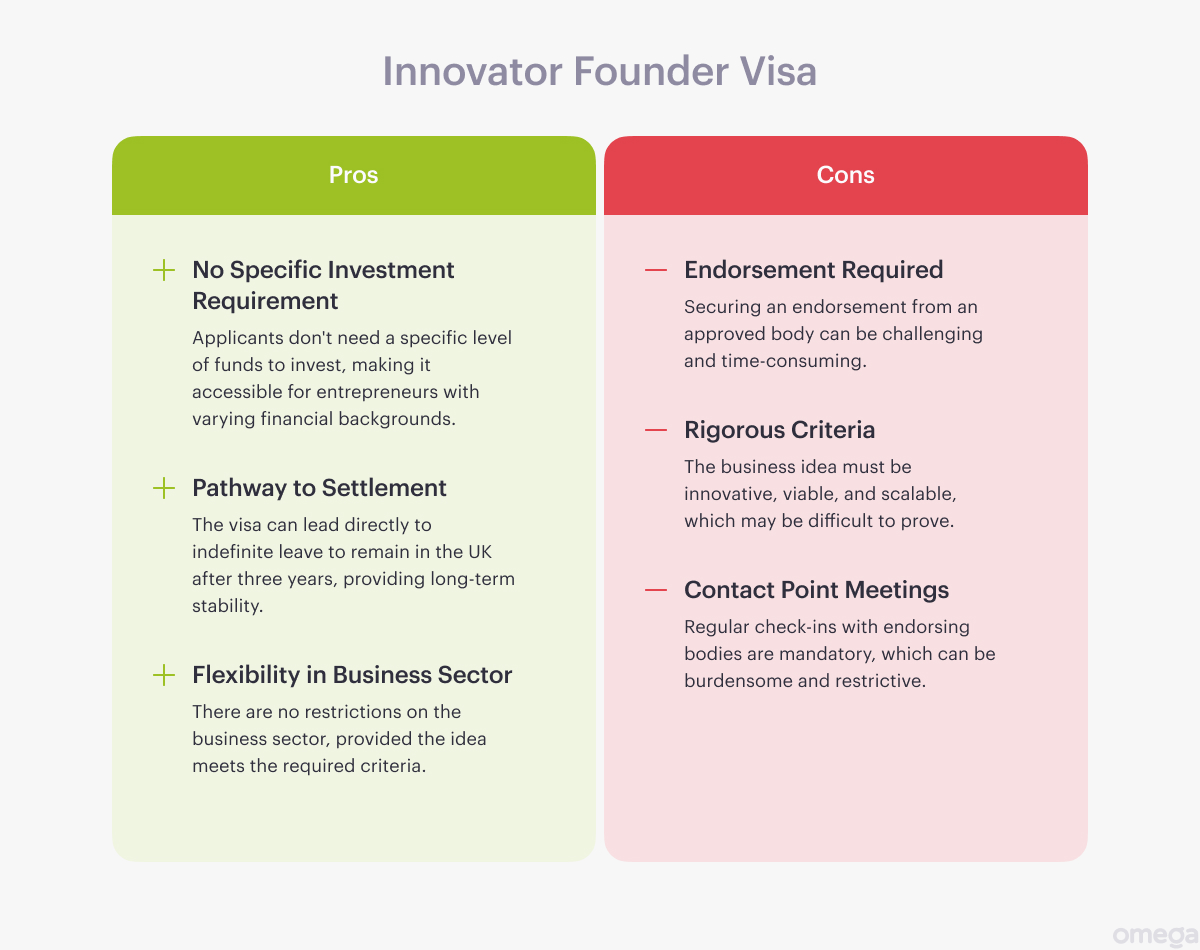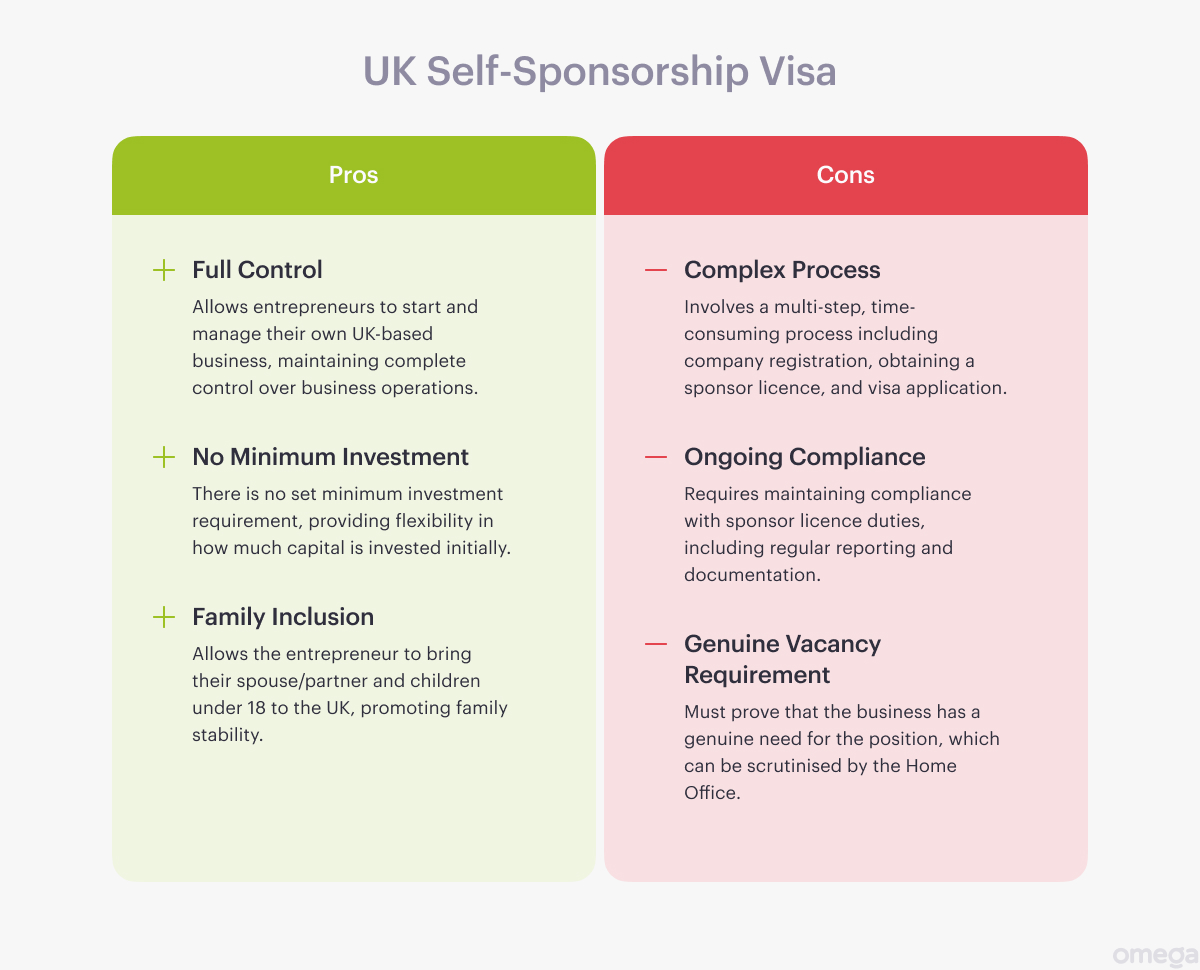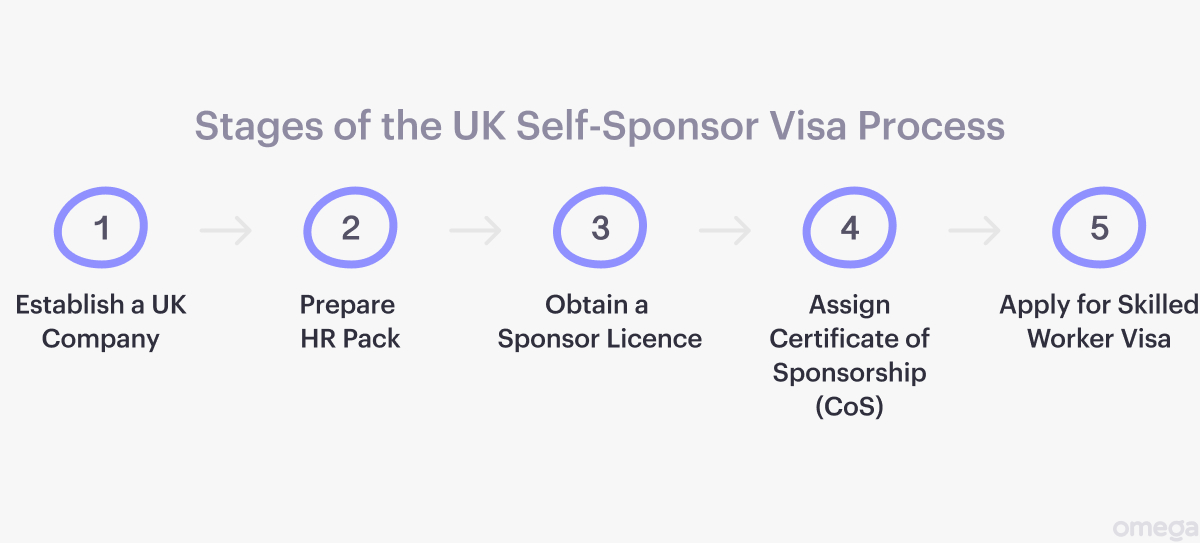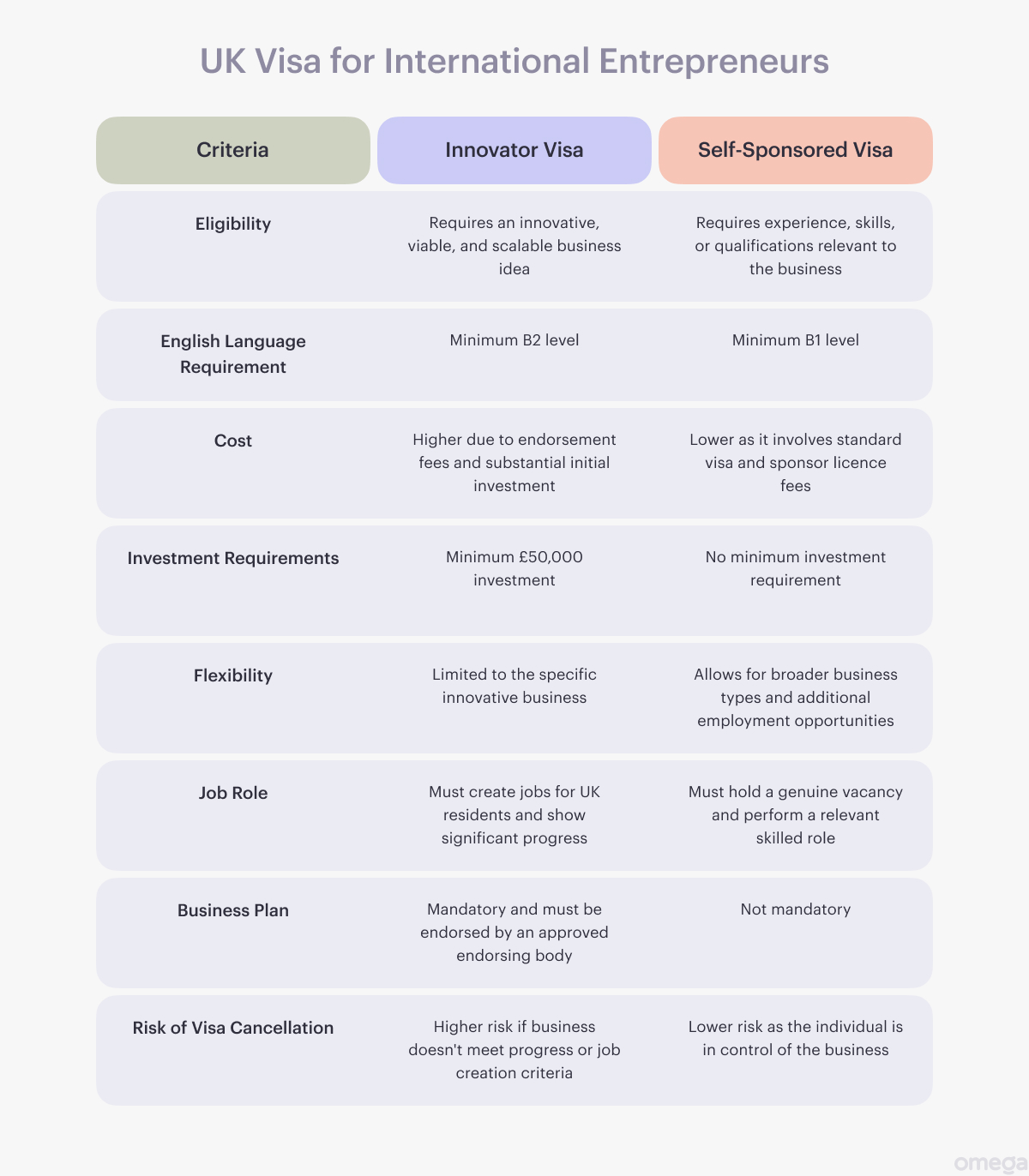The UK has always been an attractive destination for entrepreneurs. With its favourable business environment and stable economy, it is unsurprising that so many international entrepreneurs set their eyes on the island.
However, in recent years, the UK has significantly pulled back on business-related visas, leaving some entrepreneurs wondering if it is possible to immigrate to the UK. In this blog, we would like to dive deeper into the immigration options available to entrepreneurs wishing to make a big move for their businesses and families into the UK.
What are the immigration routes for entrepreneurs?
There are two main immigration routes for entrepreneurs wishing to establish a business presence in the UK: Innovator Founder visa or Self-Sponsored Visa.
What is an Innovator Founder visa?
The Innovator Founder visa is an official visa primarily designed for unique and disruptive ventures: think of Uber before Uber or OpenAI before OpenAI.
To qualify for such a visa, the entrepreneur has to present an innovative, viable, and scalable start-up idea accompanied by a solid business plan that has received approval from one of the endorsing bodies. The applicant will also need to provide proof of their knowledge of the English language.
As an Innovator Founder visa holder, you can bring your partner and any children under 18 to the UK. One of the great benefits of the Innovator Founder visa is the shortened period until you can obtain indefinite leave to remain in the UK — only three years!

While the benefits of this route seem exciting, it is essential to note that only a few such visas were granted yearly.

What is a Self-sponsorship Visa route?
While it is not an official visa category, it can be considered a viable strategy for international business owners wishing to move to the UK. By following this route, entrepreneurs don’t need to go through the gruelling process of getting their business venture approved by the endorsing bodies or meet specific yearly turnover requirements.
To proceed with this route, an entrepreneur must sponsor their Skilled Worker visa through their UK-based business. Please note that this visa category is not as straightforward as others, so you may need expert advice to proceed with it.

Who Can Qualify for a Self-Sponsorship Visa Route?
You can apply as a self-sponsored skilled worker if:
- You are 18 years of age or older.
- You have an active UK-based company.
- Your UK-based company holds a Skilled Worker Sponsorship Licence.
- You have a valid Certificate of Sponsorship (CoS)
- Your job at the company is a “genuine vacancy” and meets the appropriate skill level and salary.
- You have met the minimum B1 level requirement for the English language.
How do you self-sponsor your visa as an entrepreneur?
To proceed with this route, follow the following five steps!

1. Register a Company in the UK
First, you will need to register a company in the UK. You can do this yourself or by using platforms such as Omega, which will handle everything from company registration to sourcing a UK address for your business. Omega also provides its clients with a borderless business account that makes managing global payments a breeze.
2. Prepare HR Pack
Afterwards, you must create the necessary HR policies and procedures for Sponsorship. For example, you may need to appoint a Sponsorship Management Role to one of your coworkers to ensure all requirements are met.
3. Obtain Sponsor Licence
Once the previous steps are completed, you can digitally apply for a sponsor licence via the UKVI website. You will need to decide what type of licence you would like to obtain: for the self-sponsorship route, you should pick the Worker licence.
4. Assign Certificate of Sponsorship (CoS)
After you receive a Sponsor Licence for your UK-based business, you should get a Certificate of Sponsorship. A certificate of Sponsorship is an electronic document that provides you with a unique number that you will need during your Skilled Worker visa application.
5. Apply for a Skilled Worker Visa
As the last step, you must apply for the Skilled Worker visa via the UKVI website. A Skilled Worker visa allows you to work and live in the UK for up to 5 years. After five years, you can apply for Indefinite Leave to Remain (ILR) and obtain British citizenship a year later.
Is a Self-Sponsored Visa Route Better than an Innovator Founder Visa?
Each visa route has its strengths and weaknesses. Overall, it could be argued that the self-sponsored visa route allows for more freedom, as it doesn’t dictate how an entrepreneur should run their business. At the same time, the Innovator Founder visa will enable individuals to obtain ILR and British Citizenship faster. Below, you can see how both visas compare against one another.

While both options provide a viable way for entrepreneurs to relocate to the UK, they have their own distinct requirements and benefits.
How can Omega help?
With Omega, international entrepreneurs can start and grow their businesses in the UK hassle-free. Beyond the global business account, Omega also offers a comprehensive suite of business services such as accounting, legal, and more, all in one platform. This makes it the one-stop-shop solution for international entrepreneurs wishing to relocate to the UK. Register a company and seek immigration advice, all from one place.




